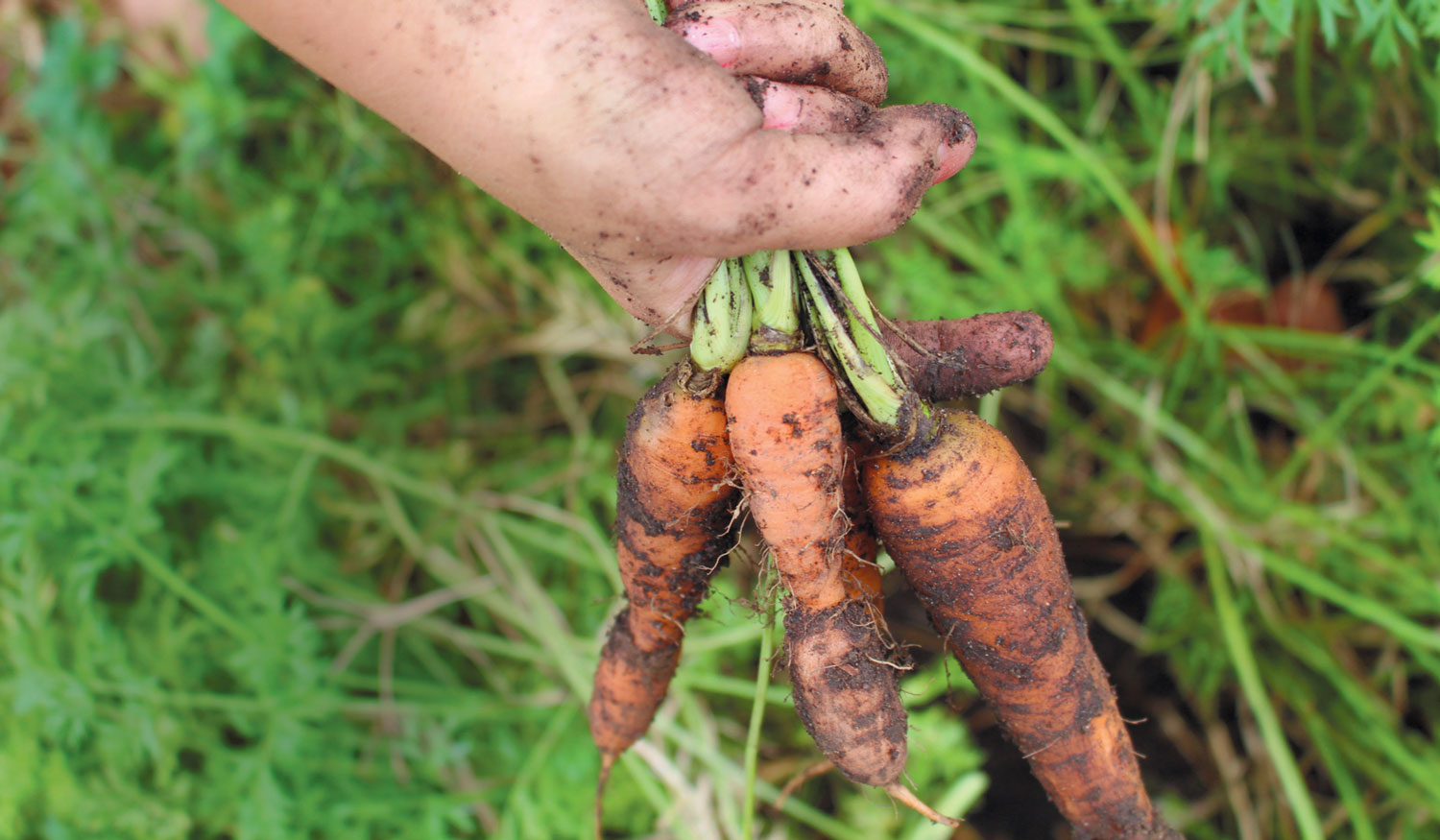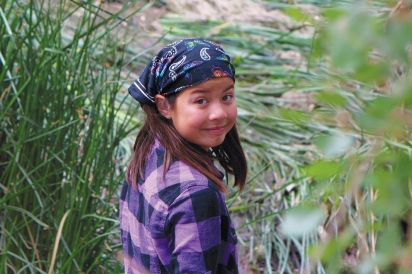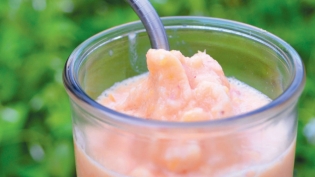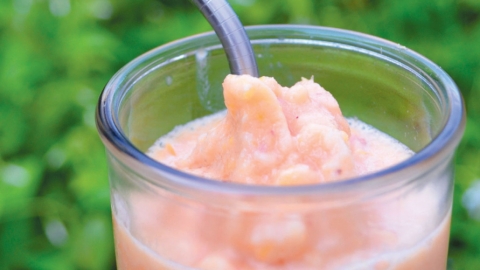Go Wild
Is keeping kids indoors and too clean making them sick?
When I think back to my childhood, it brings to mind summers spent frolicking through the neighborhood with friends, exploring the empty lots and open spaces and fishing in the pond down the street. I remember mud pies and camping trips, sleeping outside in the tree house and catching tadpoles in a nearby stream.
It sounds idyllic, doesn’t it? Unfortunately, it is a far cry from what many children experience today. While raising my children, I have been surrounded by concerned parents who carry wet wipes and hand sanitizer for dirty fingers, make sure their children have shoes on before stepping outside and do their best to protect their precious charges from the real and perceived dangers of the world.
But what if the advice we were inundated with over the past 20–30 years is all wrong? What if, in our protection, we are actually keeping our children from optimal physical and mental health?
Enter Rewilding, a concept typically associated with bringing landscape or wildlife back to their natural state. When applied to children (and adults), it represents a reconnection to the wisdom that is found in the wildness of the natural world. In less ethereal language, it means getting kids into direct interaction with nature for the sake of better health and mental clarity.
Research in microbiology and immunology over the last several years has given us a new “Hygiene Hypothesis,” which says that we have been keeping our kids too clean and it is actually making them sick. More exposure to bacteria, especially those found in dirt and nature, can reduce incidences of asthma, obesity, depression and even some autoimmune diseases, according to Rob Knight, microbiologist and cofounder of the American Gut Project, who coauthored Dirt Is Good: The Advantage of Germs for Your Child’s Developing Immune System (St. Martin’s Press, 2017).
On the psychological side, many young people now are in danger of having “Nature Deficit Disorder,” a term author Richard Louv coined in 2008, giving label to the increasing cost for children when they spend almost no time in unfettered outdoor play. In fact, a study out of the University of Cambridge showed that children can often identify more cartoon and Pokémon characters than plants and animals that live nearby.
By unplugging and honoring the outer ecosystem, there is often a side effect of better health for our complex and intricate inner ecosystem.
“Since 1982, Japan has had a successful national health program of ‘Shinrin-yoku’ or forest bathing [spending concentrated time in the forest]. It’s not just about the cleaner fresh air; studies have found forest bathing can lower our heart rate, blood pressure, stress hormones and depression. What’s more, the oils that trees emit to protect themselves from disease and insects can actually enhance our immune systems,” says Moorpark resident and psychologist Catherine Linson, who studied the benefits of nature as part of her doctorate.
Here are some ways to practice rewilding with your children:
TAKE SHOES OFF
With 25% of the body’s muscles below the ankle, our feet have evolved specifically to handle the multifaceted terrain of the natural world. When we trap our feet in shoes, particularly with heels, the muscles can actually atrophy so that they, and the rest of the body as a result, end up in dysfunction and pain. If we start children in the early stages of life without shoes, and allow them to walk on the various outdoor surfaces—like grass, dirt, sand, rocks and trees—it sets them up for better body movement and flexibility throughout their lives. But it is never too late to start.
Now is a great time to try out some barefoot play, and the bonus is that kids usually love it.
GET OUTSIDE
The average American spends about 90% of their life indoors, and the average child today has about 30 hours of “screen time” per week. That is nearly a fulltime job. It also explains the disconnection with the wild world.
The more we expose children to nature, the more it can become part of them, increasing the health of both our kids and the planet they will inherit. According to the American Medical Association, the benefits of direct contact with nature may also include increasing cognitive function, focus, creative thought processes and the ability to self-regulate and problem-solve. Amazingly, it may also decrease symptoms of ADHD.
Some things to try in Ventura County:
• Explore the beaches.
• Go on nature walks.
• Try new hikes.
• Visit parks with good climbing trees and rocks.
• Visit parks with creeks or ponds.
• Run around on local open spaces.
• Check out Ventura Wild (VenturaWild.com), which offers programs to help kids and families connect with nature.
VISIT FARMS (and farmers’ markets)
We have some truly wonderful farms in Ventura County, some of which are making it a point to grow food in a way that is as close as possible to the way nature would do it. Farm tours are a great way to get kids exposed to animals and plants they might not otherwise see, as well as introduce them to how we get food in the first place.
GROW FOOD (preferably organic and bare-handed)
When children participate in the process of growing food, they are more likely to eat it and that generally means an increase in vegetable consumption and, well, some dirt.
There are more healthy bacteria in one spoonful of healthy soil than there are people on the planet. When we dig in the dirt, we are getting a good dose of probiotics on and through our skin. When we eat freshly picked vegetables, before they have been completely cleaned off, we get those same benefits internally. Dirt is actually good for us.
START NEW FAMILY TRADITIONS (especially those that encourage kids to get dirty)
It is amazing what children will do if it is part of a family culture, or “just the way we do things.” No matter how old your kids are, creating new family traditions can instill rewilding values with each experience.
Some ideas:
• When it rains, go for walks without an umbrella and puddle jump.
• Set up a weekly/monthly beach day and go, rain or shine.
• Raise chickens for eggs.
• Cook a farm- or garden-fresh meal together once a week (or more).
• Go for barefoot walks.
• Try a new flavor of kombucha each time you go to the store (or make your own).
• Forage ingredients together (see foraging article link at left).
• Once kids come in from outdoors, continue the healthy trend with a tasty good-for-you treat like the Orange Strawberry Cream Slush(recipe link at left)













